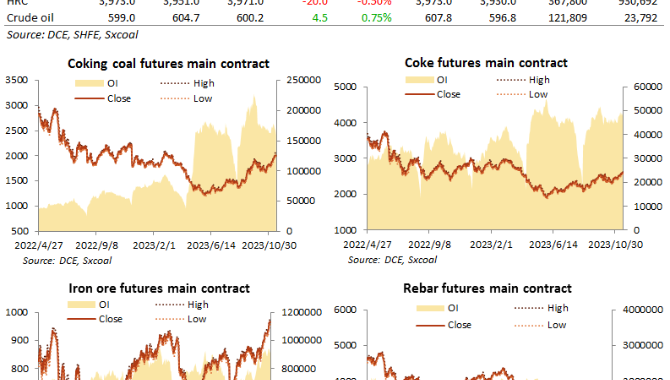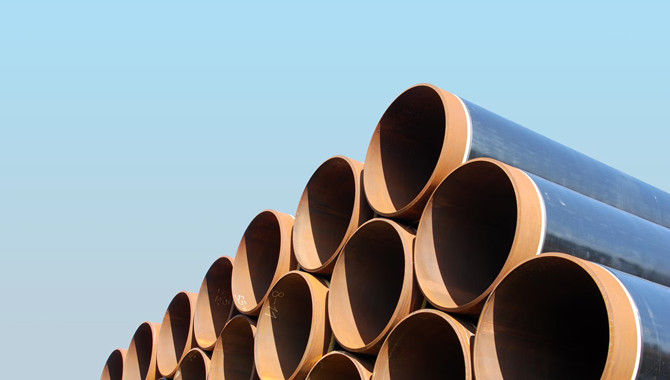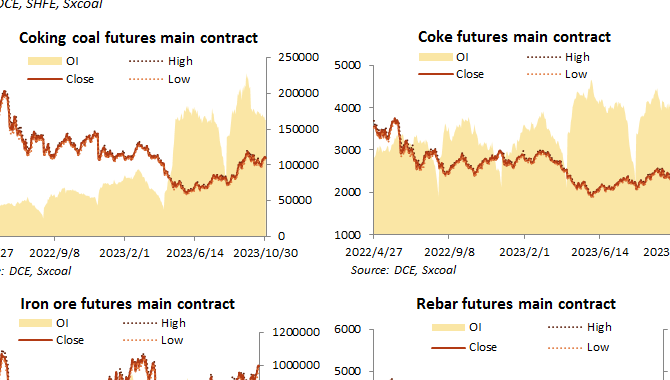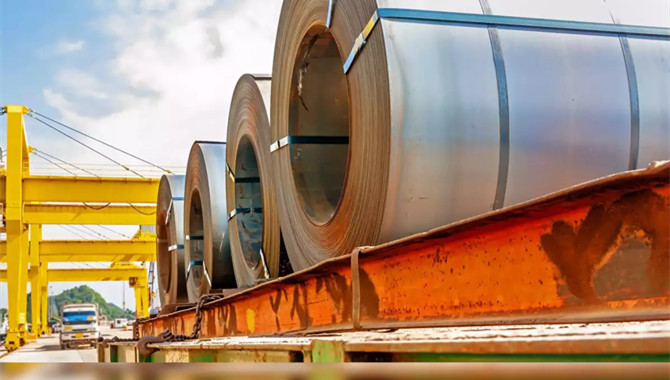
Chinese iron ore prices rose in early trade on May 21 after Vale said it would halt operations at a mine in Brazil because of an inconclusive stress test, but gains were capped by the potential restart of a much bigger mine.
Vale said on March 20 it had decided to suspend operations at its Alegria mine in Minas Gerais state after the test failed to guarantee stability. It said the impact on iron ore production is seen at 10 million tonnes per year.
"We do not expect an extended closure at Alegria, but this announcement is further evidence of the risk and uncertainty around Brazilian iron ore supply," Jefferies said in a note, putting Vale's announced or anticipated mine closures since a deadly accident in January at over 90 million tonnes per year.
Vale said on March 19 that a local court had cleared the way for it to resume operations at its Brucutu mine, where production has been halted since the collapse of a dam that killed some 300 people.
The most traded iron ore contract on the Dalian Commodity Exchange rose 1.4% to 622 yuan/t ($93.18/t) in opening trade before easing to 616 yuan/t by 0215 GMT, still up 0.4%.
It closed 3.7% lower at 613.50 yuan/t on March 20 after shedding 5.7% intraday on news that Vale was set to resume operations at the 30-million-tonnes-per-year Brucutu mine, its largest in Minas Gerais.
"The previous day's news is still having an impact," said Zhao Xiaobo, an analyst with Sinosteel Futures in Beijing, adding that Chinese demand for the steelmaking raw material was stable.
The contract has gained about 25% this year on fears of supply constraints after the collapse of the Vale dam on January 25.
Spot iron ore for delivery to China fell 2% to $86.50/t on March 20, data showed, which puts inventory of imported iron ore at Chinese ports at 148.2 million tonnes, the highest since late September.
Meanwhile, the most-active steel rebar contract on the Shanghai Futures Exchange rose 1% to 3,819 yuan/t, while hot-rolled coil gained 0.6% to 3,725 yuan/t.
"In accordance with the end of the heating season and environmental restrictions, steel mills are continuing to restore production and steel product output is steadily rising," Zhao said.
The peak winter heating season in northern China runs from November 15 to March 15.
Among the other steelmaking raw materials, coking coal nudged up 0.4% to 1,235.50 yuan/t and coke climbed 0.9% to 1,984.50 yuan/t.
Source:sxcoal
Please Contact Us at:
admin@xindemarine.com


 PIL launches Academy to strengthen workforce compet
PIL launches Academy to strengthen workforce compet  Coal shipments to advanced economies down 17% so fa
Coal shipments to advanced economies down 17% so fa  China futures market updates at close (Nov 14)
China futures market updates at close (Nov 14)  CISA: China's daily crude steel output down 5.7% in
CISA: China's daily crude steel output down 5.7% in  China futures market updates at close (Oct 31)
China futures market updates at close (Oct 31)  CISA: China's daily crude steel output down 1.2% in
CISA: China's daily crude steel output down 1.2% in